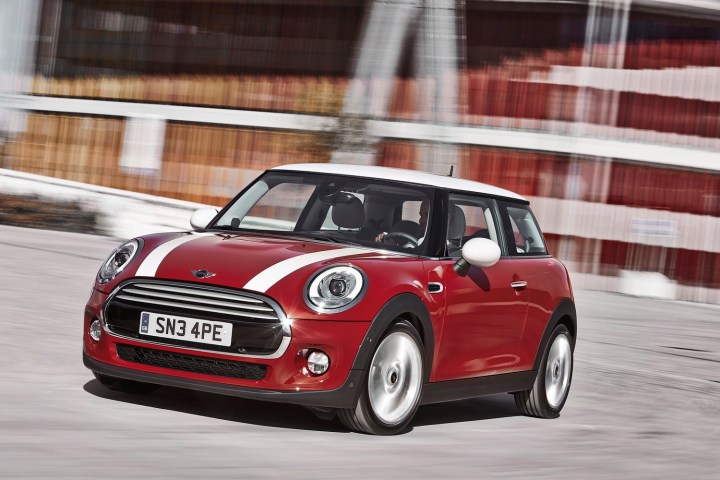
The German automaker previously discussed an electric Mini as part of its electric-car plans and now it has confirmed that car will be based on the basic Mini three-door hatchback (called the Hardtop in the U.S.). An electric powertrain will replace the regular gasoline engine, creating a car with the same retro Mini styling, but with all-electric power.
The electric Mini will go into production in 2019. Its powertrain will be manufactured in Germany and shipped to the Mini factory in Oxford, England, to be married with the body.
This car more or less brings BMW full circle. When the company first began investigating electric cars, it built a fleet of Mini E prototypes to test out electric powertrains. The cars were leased to a select group of customers beginning in 2008 and provided data that was later used to help develop the BMW i3.
The i3 remains the only all-electric car in BMW’s lineup, but the automaker has a fleet of plug-in hybrids. In the U.S., it sells the i8 sports car, and plug-in hybrid versions of the 3 Series, 5 Series, and 7 Series sedans, as well as the X5 and Mini Countryman SUVs. Plug-in hybrids are the driving force behind BMW’s push to sell 100,000 electrified cars this year, equivalent to the amount it sold in the previous three years combined.
But BMW has plans for more all-electric cars as well. In addition to the electric Mini, it will launch an all-electric version of the X3 in 2020, and an electric sedan code-named iNext in 2021. The iNext is expected to have some degree of autonomous-driving capability, developed through a partnership between BMW, Intel, Mobileye, and Delphi. BMW also plans to launch the i8 Roadster, a convertible version of the i8 plug-in hybrid, next year.
BMW’s electrification efforts originally centered around the “i” sub-brand, but the expansion of electrification to the company’s regular models reflects the reality of the market. In comparison to the specialized “i” models, other luxury automakers are casting a broad electrification net. Volvo plans to electrify every car it makes by 2019, and Mercedes-Benz plans to launch 10 electric models of various designs under its new “EQ” sub-brand.


